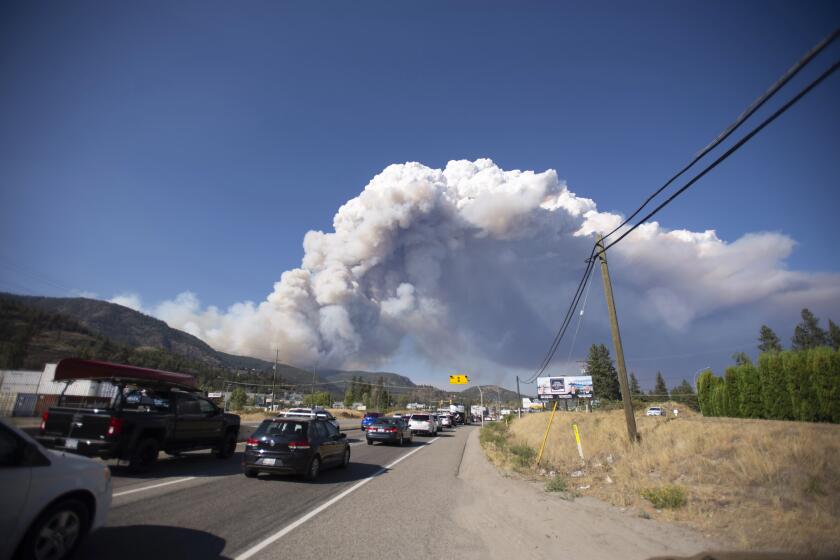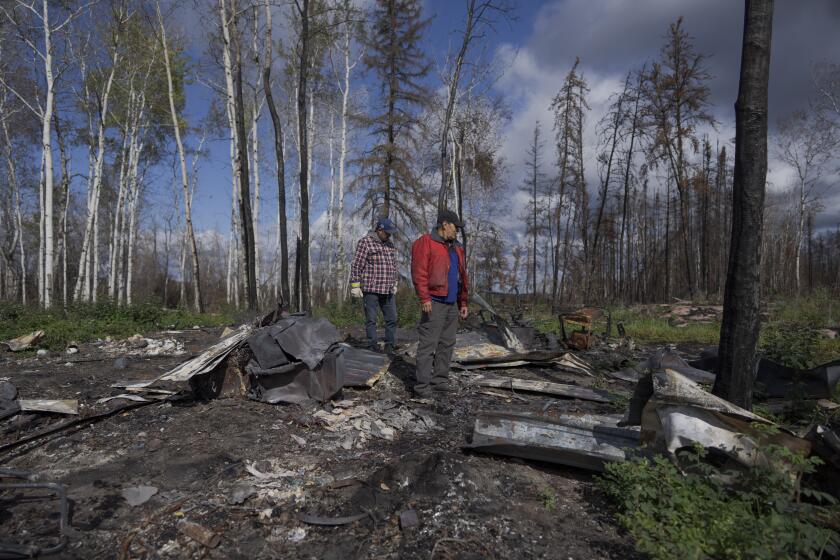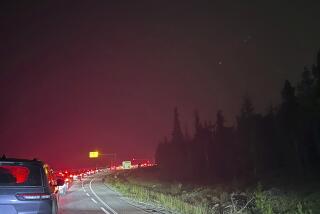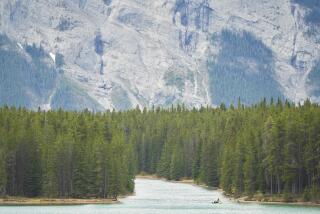Town prepares for possible ‘last stand’ as wildfires rage in western Canada
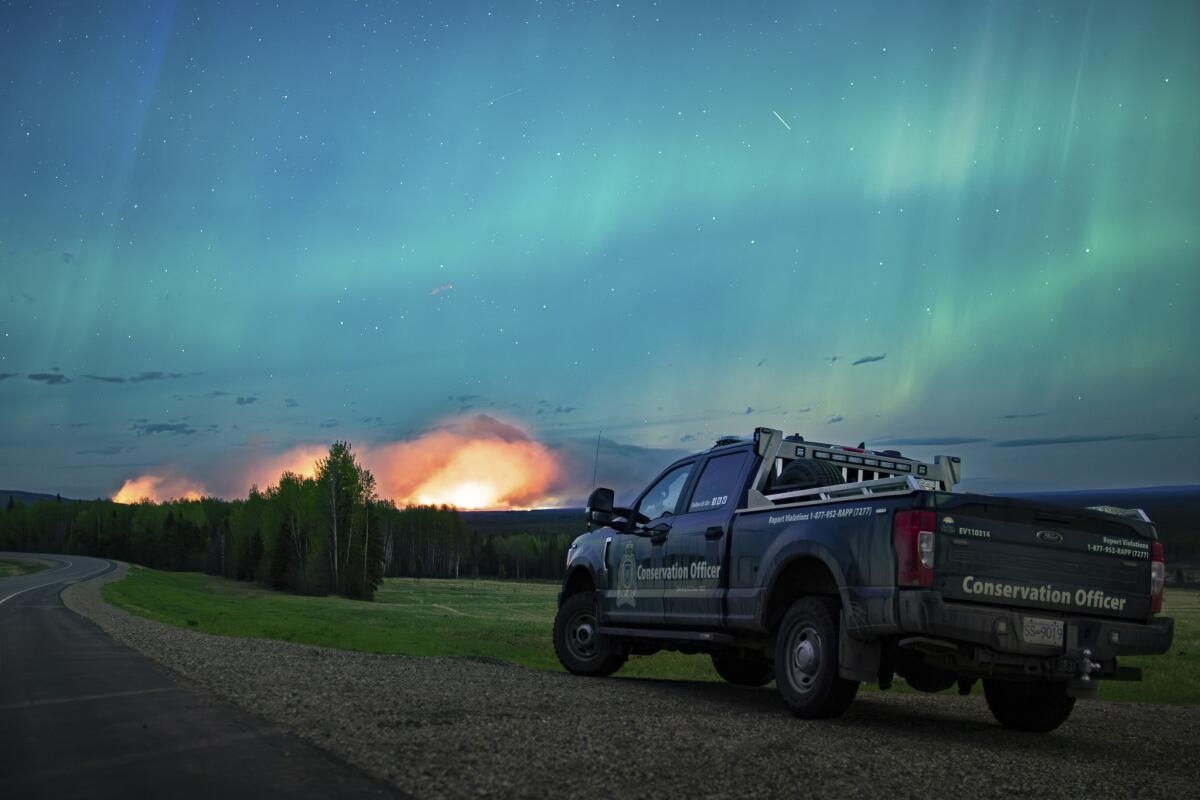
- Share via
FORT NELSON, British Columbia — An intense wildfire could reach a town in western Canada on Monday, fire experts and officials warned, based on forecasts of strong winds that have fueled the out-of-control blaze which has forced the evacuation of thousands of people.
The British Columbia Wildfire Service said the blaze was burning 1.2 miles northwest of Fort Nelson. More than 3,000 people have evacuated after an order was issued on Friday.
Fire crews and emergency workers were preparing for a “last stand” if the fire advances into the town, said Rob Fraser, mayor of the Northern Rockies Regional Municipality based in Fort Nelson. Fraser said fewer than 100 people remained in town. The wildfire service encouraged those left to leave.
“Escape routes may be compromised and visibility will be poor as the fire continues to grow,” Cliff Chapman, the service’s director of operations, warned in an update Sunday night. The wildfire had swelled to nearly 20 square miles.
In a video posted on social media late Sunday, the service’s fire behavior specialist, Ben Boghean, said the extreme fire behavior — made worse by years of drought and a below-normal snowpack this past winter — could threaten the crews that have been fighting the nearby Parker Lake wildfire.
Homes burn in West Kelowna, B.C., as one fire grows sixfold overnight. Another threatens to cut off Yellowknife, forcing thousands to flee Northwest Territories capital.
Fraser warned that resources such as water and electricity may diminish or stop for public use since much of the supply will be directed to support firefighters.
In 2023, Canada experienced a record number of wildfires that caused choking smoke in parts of the U.S. and forced more than 250,000 Canadians to evacuate their communities. There were no civilian casualties, but at least four firefighters died.
A smoky haze from the Canadian wildfires hung over parts of Minnesota and Wisconsin on Monday, pushing air quality down to unhealthy levels for the second day in a row.
The Minnesota Pollution Control Agency issued its first air quality alert of the season for the entire state on Sunday, extending until noon on Monday.
Smoke from the fires has prompted air quality alerts spanning from British Columbia to Manitoba in Canada.
Fort Nelson is in the far northeastern corner of British Columbia, about 1,000 miles from Vancouver. Fort Nelson and the Fort Nelson Indian Reserve have a combined population of around 3,400 people.
Canadian leaders have insisted the country can exploit its natural resources, protect biodiversity and lead the global fight against climate change.
The province’s minister of emergency management, Bowinn Ma, said Sunday night that to supplement limited accommodations for evacuees, the province is setting up an additional space with 200 rooms in Sunset Prairie, a community 275 miles to the south.
The blaze is one of several out-of-control wildfires in western Canada threatening communities in provinces such as Alberta and Manitoba.
Fires burned near Fort McMurray and Grande Prairie in Alberta, while officials in Manitoba have evacuated about 500 people from Cranberry Portage, about 435 miles northwest of Winnipeg.
The Regional Municipality of Wood Buffalo in northeastern Alberta has told Fort McMurray residents to be ready to evacuate on short notice, as a large fire burns about 10 miles to the southwest. Schools were still open Monday.
Associated Press writer Steve Karnowski in Minneapolis contributed this report.
More to Read
Sign up for Essential California
The most important California stories and recommendations in your inbox every morning.
You may occasionally receive promotional content from the Los Angeles Times.
